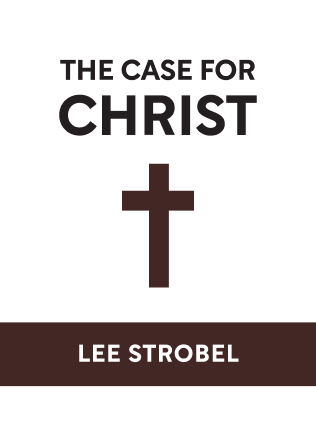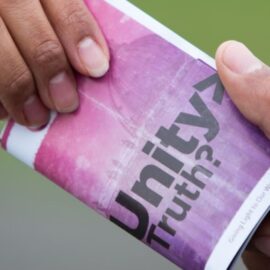

This article is an excerpt from the Shortform summary of "The Case for Christ" by Lee Strobel. Shortform has the world's best summaries of books you should be reading.
Like this article? Sign up for a free trial here .
What is the lost Gospel of Thomas? What can the book of Thomas in the bible tell us about Jesus and his life?
The lost Gospel of Thomas is a test that was uncovered in the twentieth century. The book of Thomas in the Bible is a highly contested text, and the majority of Christian theologists don’t consider it canon.
The lost Gospel of Thomas is controversial, but could help clear some confusion about whether or not Jesus was real.
The Lost Gospel of Thomas: Is It Canon?
The documentary provenance of the books included in the New Testament is considerable. But—as skeptics and more liberal Christian scholars are wont to point out—those aren’t the only gospels to have been discovered. In fact, some gospels—for example, those of Philip, of the Egyptians, and of Nativity of Mary—were suppressed by early Church leaders. Which raises the question: How can we be sure the canonical gospels comprise the truest accounts of Jesus?
In the early church, there were three criteria for canonization:
- The gospel had to have been written by either an apostle himself or a close follower of an apostle.
- The gospel had to conform to normative Christian tradition as the church saw it.
- The gospel had to have been widely accepted and used.
Despite some disagreement among various fringe factions in the early church, the four gospels as found in the Bible today satisfy these three criteria. The noncanonized gospels, like those of Peter or Mary, had authors different from the names attached to them and were usually written later than the gospels of Matthew, Mark, Luke, and John.
The Lost Gospel of Thomas
Discovered among the Nag Hammadi documents unearthed in Egypt in 1945, the Lost Gospel of Thomas has found many adherents among liberal scholars of the New Testament. For example, the members of the Jesus Seminar—a scholarly collective active in the 80s and 90s—believed the Lost Gospel of Thomas should be canonized.
One problem with the Book of Thomas in the Bible, which comprises an array of Jesus’s sayings without any narrative, is that many of Jesus’s pronouncements run contrary to those that appear in the canonical gospels. For example, in the Lost Gospel of Thomas, there are utterances that paint Jesus as a pantheist and misogynist—quite opposite to his teachings in the four canonical gospels.
These uncharacteristic pronouncements are why the early church didn’t accept the Gospel of Thomas as legitimate. Some believe that there was a conspiracy among the fifth-century councils to suppress the Gospel of Thomas, but the truth is simpler: The early followers of Jesus knew—in the same way they knew Jesus was God—that the Gospel of Thomas wasn’t an accurate portrayal of Jesus. They sensed its inauthenticity.
Considering the Bible as a whole, there has been little scholarly dissension surrounding twenty (Matthew through Philemon, plus 1 Peter and 1 John) of the 27 books. As for the remaining seven, though they were treated with some skepticism by the early church, they have now gained full acceptance.
The “pseudepigraphia”—a term for the array of documents that appeared in the centuries after Jesus’s death—on the other hand, are widely disputed. Strobel finds them ludicrous and inconsistent with Jesus’s teachings, and their origins in the fifth and sixth centuries are too distant from Jesus’s life to be credible testaments to Jesus’s historical existence.
Suppressed Gospels
Arguably the most controversial of the Jesus Seminar’s pronouncements was that the Gospel of Thomas, a long marginalized text, should be included in the New Testament canon. The Gospel of Thomas features passages that the Jesus Seminar argues (1) predate the accounts of Jesus found in the canonical gospels and (2) depict a naturalistic Jesus.
Scholars associated with the Jesus Seminar have also raised questions about other “secret gospels” that have been discovered, including “Secret Mark” and the “Cross Gospel.” Some Jesus Seminar members have speculated that these secret gospels feature revelations about Jesus that expose him as exclusively mortal.
To most serious scholars of the New Testament, however, these so-called “secret gospels” are simply a distraction. In fact, most aren’t even discoveries: theologians have long known about the Gospel of Thomas—and have dismissed it because it so clearly contravenes the Jesus of the canonical four gospels (see Chapter 3).
“Secret Mark,” according to its proponents, is a longer and more reliable version of the gospel of Mark, one that was suppressed by the early Church. The problem with this assertion is that no copy of “Secret Mark” exists, and there’s only the thinnest evidence it ever did exist. Everything we know about “Secret Mark” is contained in a quote from it included in a letter by a second-century author. (And, curiously enough, there’s no existing copy of the letter, either—only a picture taken of it by the mid-twentieth-century scholar who found it.)
(Shortform note: Some contemporary commentators believe that the scholar who photographed the letter actually fabricated it.)

———End of Preview———
Like what you just read? Read the rest of the world's best summary of Lee Strobel's "The Case for Christ" at Shortform .
Here's what you'll find in our full The Case for Christ summary :
- How an atheist lawyer-journalist researched Christ and began believing
- The key arguments against the existence of Christ, and why they don't hold up
- How to make up your own mind about whether Christ existed






